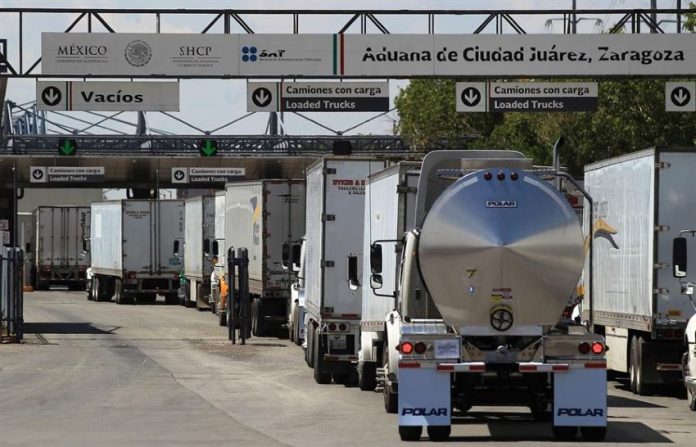Goods worth more than US $1.5 billion are held up at the northern border due to the Texas government’s decision to conduct stringent inspections of trucks entering the Lone Star state at border crossings between Ciudad Juárez, Chihuahua, and El Paso, according to Mexico’s National Chamber of Trucking (Canacar).
The Texas Department of Public Safety (DPS) began strict inspections of northbound trucks just over two weeks ago as part of efforts to prevent the entry of undocumented migrants and narcotics amid a surge in migrant arrivals at the border. Those inspections are in addition to ones carried out by U.S. Customs and Border Protection (CBP).
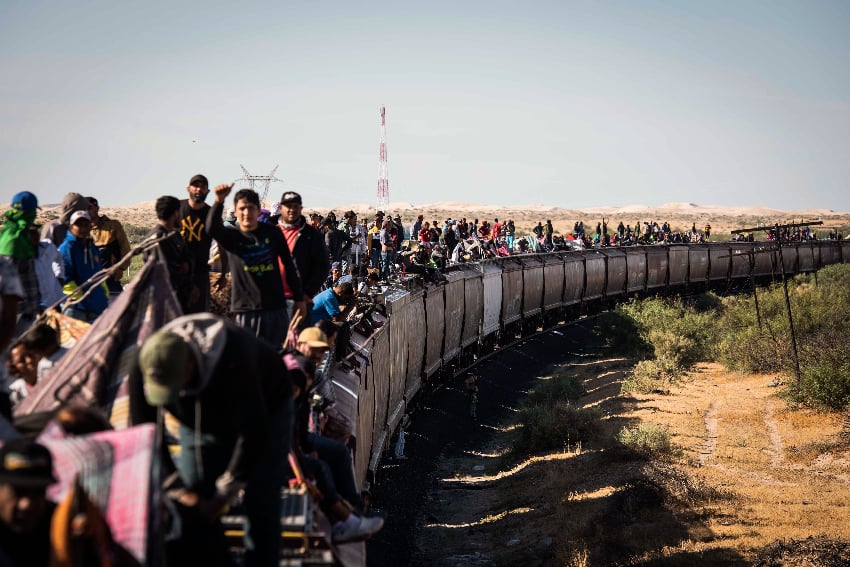
The suspension of cargo processing at the Bridge of the Americas between Ciudad Juárez and El Paso since Sept. 18 is also a factor in long wait times for trucks crossing the border.
In a statement issued Wednesday, Canacar expressed its “deep concern” at the impact of the inspections at crossings between Juárez and El Paso, and asserted that the measure implemented by Texas Governor Greg Abbott is contrary to the “spirit of collaboration” and “vision of the future embodied in” the USMCA, the North American free trade agreement that superseded NAFTA in 2020.
“This measure has caused a crisis that has resulted in [border crossing] closures, [the need for] detours, increased crossing times and significant reductions in export volumes of various products from Mexico to the United States,” the association said.
Canacar said that 15,000 “loads” of freight were held up at the border and that their collective value was over $1.5 billion.
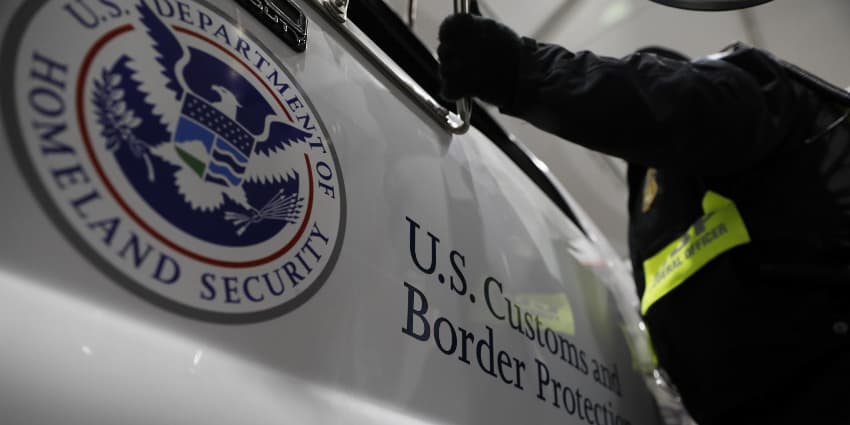
The trucking chamber called on the Texas government to “speed up the commercial exchanges that occur daily in this region and which represent one of the greatest strengths of the relation between the two countries.”
It also called on the Mexican government to use “all forums of bilateral dialogue to express the concern” of the freight transport industry “due to the situation that has prevailed for the past three weeks on the northern border.”
Interruptions to the movement of goods across the border “has a direct impact on the economy of the two countries, affects supply chains … and places tens of thousands of jobs on both sides of the border at risk,” Canacar said.
The DPS has also been conducting inspections of trucks entering Texas at crossings between Piedras Negras, Coahuila, and Eagle Pass, and Guadalupe, Chihuahua, and Tornillo.
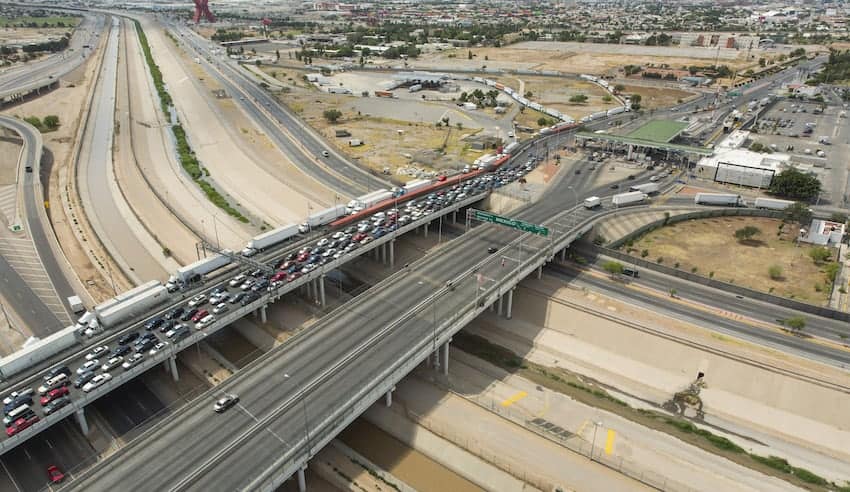
“The DPS inspection is slowing down the commercial traffic flow,” Homero Balderas, general manager for the city of Eagle Pass International Bridge System, told the logistics and freight news website FreightWaves earlier this week.
“We have gone from 850 trucks a day to roughly under 400 due to the inspection delay. It’s hurting the Eagle Pass Bridge System drastically and more importantly the supply chain,” he said.
FreightWaves reported wait times on Monday of over four hours at the Camino Real International Bridge between Eagle Pass and Piedras Negras and cargo truck delays of more than six hours at the Ysleta-Zaragoza bridge between El Paso and Juárez.
Thor Salayandia, president of the Juárez Chamber of Industry and Manufacturing, told the EFE news agency last week that Abbott is “strangling” the export-focused manufacturing industry in northern Mexico.
“He is politicizing the immigration issue and attacking Joe Biden and Mexico on this issue, which affects all of us. He has the agents doing some checks where he is no longer looking for migrants. He wants to hurt the … [manufacturing sector] and is doing that,” Salayandia said.
“It is regrettable that only one person, the governor of Texas, Greg Abbott, is the one who is causing all this damage to both the economy of Juárez and the companies that own the maquiladoras. It is very unfortunate that so far no one has been able to stop him, not even President Biden,” he said.
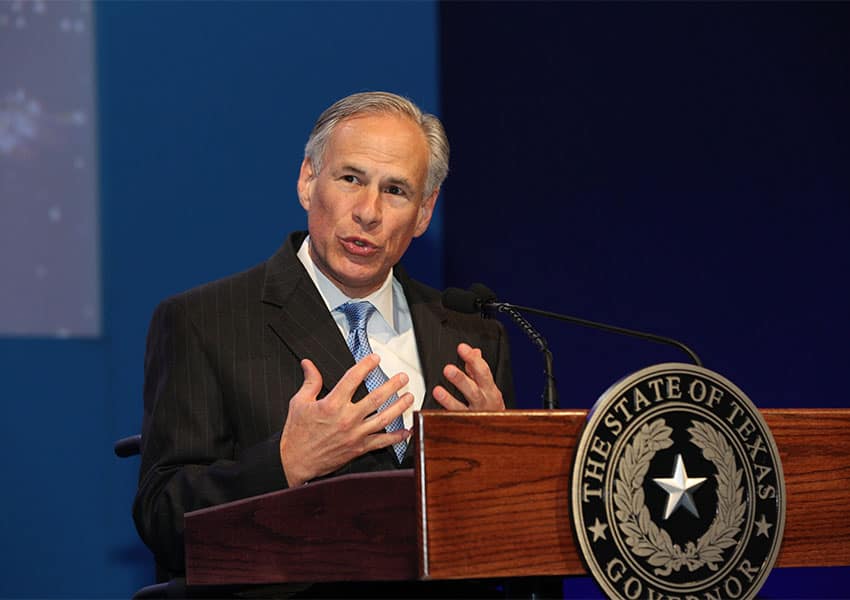
El Paso County Judge Ricardo Samaniego said last week that it was “unfortunate” that there is a “double inspection” given that both the CBP and the DPS are checking trucks.
“They have not found drugs; they have not found migrants in the trucks, yet the inspections continue at a rate of 100%,” he said.
“We know this is something political and a very aggressive attitude from the governor,” Samaniego said.
Texas has previously conducted inspections of northbound freight trucks, including in May as the United States pandemic-era Title 42 migration expulsion policy was ending.
Mexico’s Economy Ministry said at the time that the actions implemented by the Texas government were “motivated by an anti-Mexican vision that is far removed from the social, cultural and economic integration between Mexico and Texas.”
A stringent inspection policy for commercial vehicles enacted for a period last year by the Texas government to detect drugs and migrants trying to enter the U.S. illegally also caused long delays at the border and heavy financial losses.
With reports from Reforma, Freight Waves, EFE and Border Report
